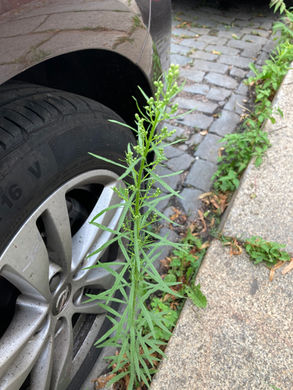
integrative CONyza NEtwork for Contemporary Trait evolution
WHAT IS iCONNECT?
iCONNECT, the integrative CONyza NEtwork for Contemporary Trait evolution, is an interdisciplinary network dedicated to investigating the sources and consequences of intraspecific trait variation. Comparisons between native and non-native populations allow to study post-introduction evolutionary change at contemporary time scales. Our collaborative network collected seeds and field data of > 300 Conyza canadensis populations, sampled across broad environmental gradients in native and non-native ranges. Based on this extensive sampling, iCONNECT operates as a collaboration of researchers who investigate intraspecific trait variation in their particular research fields using the sampled populations and the so-far collected field and common garden data. Assessments so-far include a broad range of multi-omics approaches, such as phenotypic data, ddRADseq, eco-metabolomics, whole genome sequencing, amplicon sequencing.
Figure: Overview of all currently sampled native (blue) and non native (red) populations of Conyza canadensis.

Conyza canadensis is an annual weed known for its prolific seed production, pronounced drought tolerance, and high plasticity. These traits make this species a successful invader and an economically significant agricultural weed, and as such, an important model species for both invasion biology and weed science. The species is native to North America and non-native to large parts of the rest of the temperate and subtropical world. This cosmopolitan distribution allows studying among-population variation in biotic interactions across extensive climatic gradients.Conyza canadensis has demonstrated a high capacity for rapid evolution, as evidenced by its status as the first eudicot to evolve glyphosate resistance. The capacity for rapid evolution is likely facilitated by its genome architecture, which includes a small genome with a large number of genes. Additionally, its annual life cycle and self-pollinating reproduction accelerate the selection process for advantageous alleles, further promoting rapid evolution.









